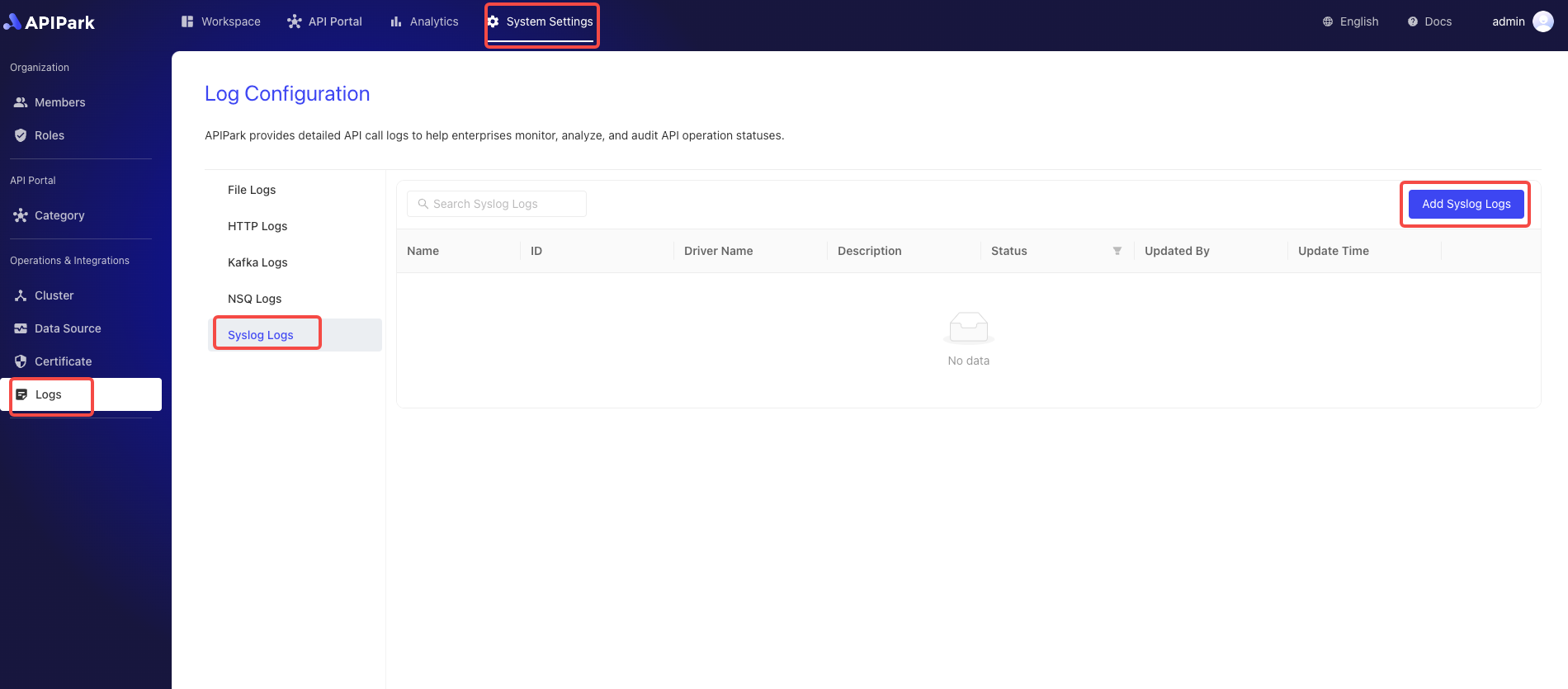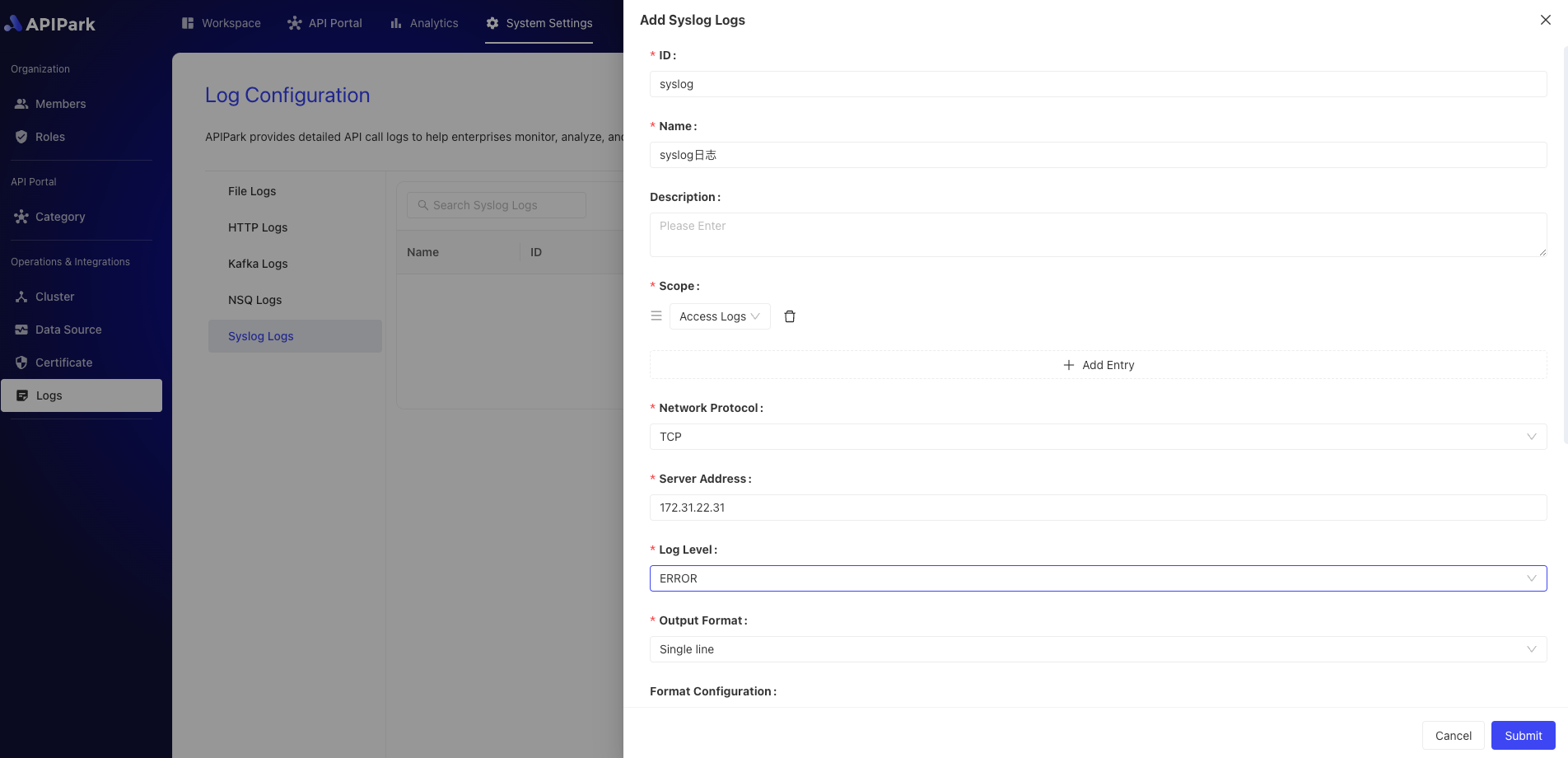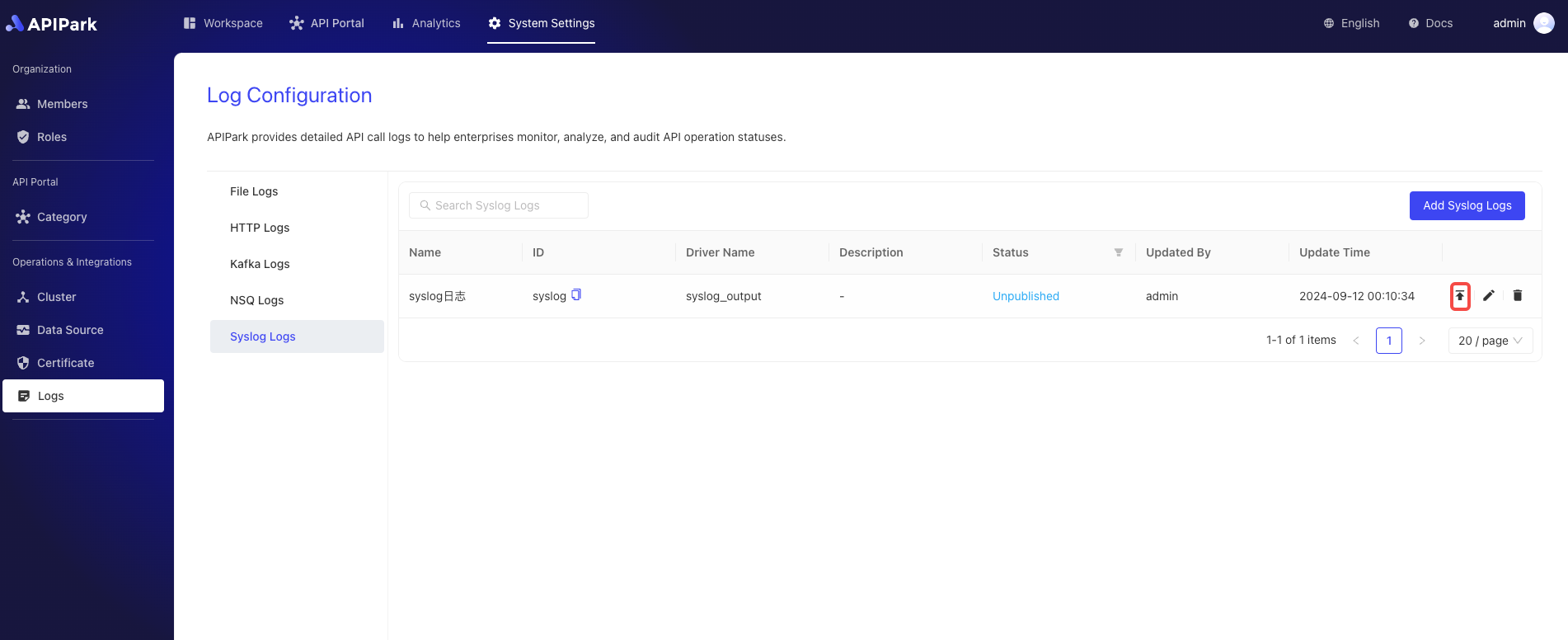Syslog Logs
Introduction
Collect log information from request gateways and output it to Syslog.
Features
Capable of outputting log content generated during program execution to a remote Syslog server.
- Supports various request protocols, including TCP, UDP, UNIX
- Allows setting log levels for Syslog output
- Supports different output log format types
- Provides customization options for log formatting configuration
Operation Demo
Creating a New Syslog Log Configuration
- Click on
Operations & Integration->Log Configuration->Syslog Login the left navigation bar, and then clickAdd Syslog Log.

- Fill in the Syslog log configuration by section.

Configuration Explanation:
| Field Name | Description |
|---|---|
| Network Protocol | The protocol for requesting the Syslog service, supporting TCP, UDP, UNIX |
| Server Address | The address of the Syslog service |
| Log Level | Syslog output log level, supporting ERROR, WARN, INFO, DEBUG, TRACE |
| Output Format | The format of the output log content, supporting single line or JSON format |
| Formatting Configuration | Output format template, configuration guide click here to jump |
Formatting Configuration Example
{
"fields": [
"$time_iso8601",
"$request_id",
"@request",
"@proxy",
"@response",
"@status_code",
"@time"
],
"request": [
"$request_method",
"$scheme",
"$request_uri",
"$host",
"$header",
"$remote_addr"
],
"proxy": [
"$proxy_method",
"$proxy_scheme",
"$proxy_uri",
"$proxy_host",
"$proxy_header",
"$proxy_addr"
],
"response": [
"$response_header"
],
"status_code": [
"$status",
"$proxy_status"
],
"time": [
"$request_time",
"$response_time"
]
}
Go Live
- Click the
Go Livebutton behind the configuration to be launched.
